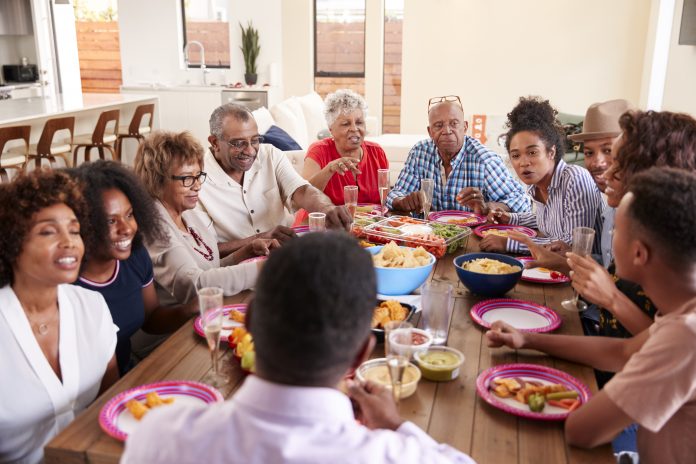Toby Mildon discusses how workplace diversity could influence the way that individuals perceive minority groups, via dinner table conversations
I often remark to my clients that the diversity of their professional networks at work is greater than our own personal circle of friends and family. Since leaving university I’ve worked for a global IT consultancy, a global healthcare software provider, a public service broadcaster and one of the big 4 accountancy firms and can testify that who I’ve worked with has been more diverse than my closest circle of friends and family (judging by the diversity of friends I chat to on WhatsApp).
I feel luckier than some though. I was born with a rare neuromuscular disability (Spinal Muscular Atrophy) and have lots of disabled friends (and my brother has the same condition) as a result, I was very active in a disabled employee network at work, many of my Personal Care Assistants are from an ethnic minority background, I’m also gay (and have gay male friends – not many lesbians though). Yet, I feel that my closest circle of friends and family could be more diverse! It certainly doesn’t reflect the diversity of the UK. I now work as a diversity and inclusion consultant and can say that this happens quite naturally to the best of us.
Realising innate biases
We have these innate biases – partly from the way that our brains are wired to social conditioning. For instance, there’s the similarity bias where we prefer what is like us over what is different. I worked with a HR Director who told me “I always thought it was opposites that attract – but now I know – it’s birds of a feather that flock together”. I will never forget his remark. Within the work context this often means that we hire people in our own image, which limits the diversity of new recruits for instance. Or we talk about who is a “culture fit” for the team. Or we are drawn to the “safe pair of hands” when we are looking for somebody to take on an important project or new client.
We can interrupt these innate biases with some awareness training (which actually isn’t that effective) or zoning in on systemic bias in our processes and systems. For example, anonymising CVs so you don’t judge somebody by their name or which university they went to or rotating work assignments rather than impulsively tapping somebody on the shoulder.
Workplace diversity and conversation
I have this theory though that workplaces play a crucial role in improving equality and inclusion for society at large. Many people work for businesses rolling out diversity training, organising cultural events, implementing diversity and inclusion initiatives and making public statements in response to movements like Black Lives Matter and Me Too. Surely, when we go home from work in the evening we “download” and discuss these things with our family over the dinner table? I believe that this must have a ripple effect into our partners, children, parents, siblings or housemates. If we are not discussing these matters with family over dinner then surely it’s sometimes a topic of conversation with our friends in the pub?
Case in point: I recently met a senior manager at an energy company. She became passionate about supporting people with learning disabilities when her employer organised an enterprise day with a local special needs school. She then got involved in creating a supported internship program for people with learning disabilities – to help them get work in her sector. She took her enthusiasm home with her. Her own children (aged 13 and 10) started to get interested too. Whilst her daughter wanted to go into healthcare anyway her son chose to volunteer with people with learning disabilities as part of his Duke of Edinburgh award. Her Gen-Z children will undoubtedly bring their experiences of learning disabilities into their future workplaces. But right now, this senior manager admits that she had a very blinkered view about learning disabilities and no lived experience of it. By getting involved in these initiatives at work she says that she has become a better leader by adapting her personal style and being a lot more conscious and patient with other people.
This is the experience of one manager in the UK. I’m sure that there are many more people like her – influencing the inclusivity of our society – because of something sparked at work. We need to go outside of our comfort zones and mix with people we don’t ordinarily hang out with. Expose yourself to fresh perspectives and new ideas. Discuss this with your family over the dinner table. Make society more inclusive.
Toby Mildon is a diversity and inclusion architect and founder of consultancy Mildon. He is also author of Inclusive Growth: Future proof your business by creating a diverse workplace.











